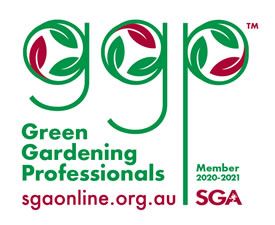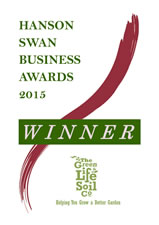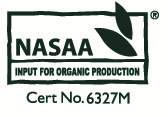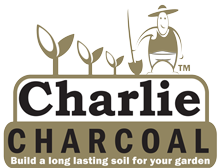| item(s), Total: $0.00 View Cart |
| Shopping cart is empty. |
Growing from Seed
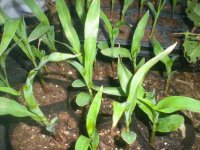
Growing or propagating from seed is something many vegetable gardeners do. It is usually cheaper than buying seedlings, and raising your own seed has the advantage of giving you more control – over exactly how your seeds are raised, and how many you choose to grow at any one time. Also there is a wider variety of heritage, non-hybrid varieties available by seed than in seedling form, meaning you can grow some unusual vegies that you simply won’t find in the shops. If you're growing vegetables in Perth - we carry a huge range of heritage (non hybrid) seeds - come and browse our range.
Do I plant directly into the soil, or in trays?
Some vegies do well grown directly into their spot in the garden (eg. Beans, peas, carrots, parsnip) while many others can be raised in seedling trays or pots, then transplanted out later. A good trick to raise seeds that don’t like root disturbance is to start them off in biodegradable pots, or make your own out of toilet roll inserts, or egg cartons. Once you are ready to plant them out, soak the whole ‘pot’ in a weak solution of liquid fertiliser, then bury in the soil. The ‘pot’ will break down and allow the roots to emerge, but they are not disturbed in the same way they would be with transplanting.
Raising seeds in trays means you can control temperature by keeping trays indoors, in a propagating tray or under plastic to keep them warm – helping them to germinate more quickly.
Most seeds need constant temperatures of between 18 – 25 degrees to germinate. Remember soil temperatures are lower than air temperatures, so you need to ensure seeds are kept warm enough.
Remember to keep an eye on moisture levels. As a general rule the smaller the seed, the more water may be required – often you are best misting regularly with a spray bottle or setting up a simple wicking system. It is as bit of a trick to ensure the seed is kept moist but not waterlogged. On our website we have a downloadable ‘When to Sow’ chart that incorporates a seed germination guide. http://www.greenlifesoil.com.au/When%20to%20plant%20guide.pdf.|
It is a delicate balance – if too moist, fungal problems can result in seedling death. Good airflow and avoiding overcrowding will help.
Temperature & moisture problems, and sowing too deeply are three of the main reasons why seeds fail to germinate. As a rough guide seeds should be sown to a depth of two/two and a half times their diameter – so you can see that is not very deep given that most seeds are quite small. Small seed can be placed on top of soil and JUST covered with a sprinkling of sand or fine compost. While germination rates vary greatly, as a very general rule most will germinate within 10 – 14 days. However, don’t get impatient and throw them out day 15 if they haven’t popped up! Some seeds take MUCH longer – Sandalwood can take over a year to germinate!
What Seeds Should I Try?
Some plants are easier to grow from seed than others. If you are a beginner, some good plants to try are cucurbits – watermelon, zucchini, pumpkin, rockmelon – etc. corn, beetroot, silverbeet are some others.
Some seed will germinate much more readily if treated prior to planting. For instance, peas and beans should be soaked in tepid water overnight prior to planting. This softens the very tough outer seed casing and makes it much easier for the plant to emerge. Usually, large seeds that have been soaked don’t need watering after planting (unless conditions are very dry) – the trick is to keep an eye on soil moisture by poking in your finger. If damp, leave it until the plant has broken through the soil before watering again.
Small seeds however can’t absorb the same amount of water so will need to be watered regularly – often with misting or a very gentle water from a rose on your hose end or watering can.
Seed germination will always be variable – depending on so many factors already discussed (moisture, temperature and depth) but also age and variety of seed will have an effect. To make sure you have enough plants to fill your requirements, it is often an idea to sow some extra seed, and select the stronger seedlings to plant out. Sometimes planting two seeds in one pot or hole can help, but don’t leave it too long to select the weaker plant and remove it.
Transplanting
Seedlings should not be transplanted in their cotolyden stage – you must wait until AT LEAST one set of true leaves emerge, but usually it’s better to wait until at least two or three sets of true leaves are out, often when the seedling is about 10cms tall.
When planting out seedlings from a punnet or tray, tap or squeeze the bottom of the cell (if it’s flexible) to loosen. Pricking out involves using a small pointed object (a pencil is good) to poke into the soil beneath the seedling and gently lever it up and out. You should have a light grip on the stem close to the soil to avoid pulling too much. Once out, use the pencil or something else to make a planting hole to insert the seedling, and carefully plant out. Watering in will help ‘settle’ the roots and remove air pockets. Kelp is recommended to help with transplant shock.
Seeds planted in situ may need thinning. Carrots and lettuce have tiny seed so it can be difficult to plant these without getting clumps of emerging plants. As they grow, continue to thin out weaker seedlings (you can always try careful transplanting – but you may have limited success) until they are spaced adequately.
Some gardeners will mix carrot seed with very fine dry sand in a jar (sieve it first) and poke a small hole in the lid, to pour the sand/seed mix out in a thin row.
What to I use to grow my seeds?
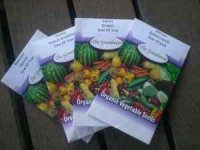 Gardeners will often have their own “special’ recipe for making a seed raising mix. It should be reasonably light (which is why vermiculite is often used) to enable tiny roots to penetrate. It is also good to have a mix with the ability to hold water (which is why cocopeat and worm castings are popular) – and fine compost is good too.
Gardeners will often have their own “special’ recipe for making a seed raising mix. It should be reasonably light (which is why vermiculite is often used) to enable tiny roots to penetrate. It is also good to have a mix with the ability to hold water (which is why cocopeat and worm castings are popular) – and fine compost is good too.
Usually a blend of these materials, or a pre-mixed commercial seed raising mix are fine. The mixture doesn’t need to be excessively rich in nutrients, as the seed raising mix is a short term growth medium, and you can supply nutrients in a soluble form for quicker uptake.
The Green Life Soil Co makes a premium, Certified Organic Seed Raising Mix - available in 15L bags.
Do I need to mulch my seedlings?
Generally we don’t recommend using mulch around small seedlings as they can be easily swamped and airflow can be reduced around them. So you will need to give them extra TLC over summer, however , once plants are a little taller then definitely use mulch to ensure maximum moisture retention over the warmer months.
How do I protect them from slaters, and snails?
Unfortunately young and tender seedlings are extremely vulnerable to insect attack. A combination of traps and baits should be used. Also consider barriers (eg. Copper wire/tape – snails don’t like to cross this); crushed eggshells, coffee grounds, diatomaceous earth – or even physical barriers like cut down rings of plastic bottles can help protect seedlings in their crucial first couple of weeks. See our pest control information for more ideas. We do carry iron based pellets like Multiguard and the Certified Organic Protect-us pellets; while non-poisonous, they can be harmful to animals if consumed in large quantities. We have found the iron based snail pellets are also effective against slaters.
Remember - we have a range of Garden Supplies and Garden Products. See our online shop for vermiculite, seed raising mix, cocopeat, natural pest control, and other products of interest which may be useful.
Not sure what to plant when in your Perth vegetable garden? Download our FREE guides - sign up for instant access.
Get Growing Today!
Come on in!
Pick up bags or bulk product bring your trailer (or use one of ours) Opening hours: 8.30 - 4.00 Monday - Saturday (closed Sunday)
Shop Online - We Deliver
24/7 convenient & secure online shopping or support your local independent retail outlet
Get Growing
We guarantee our products. Ask our friendly staff for help & advice ~ we're here to help you achieve the garden of your dreams.



